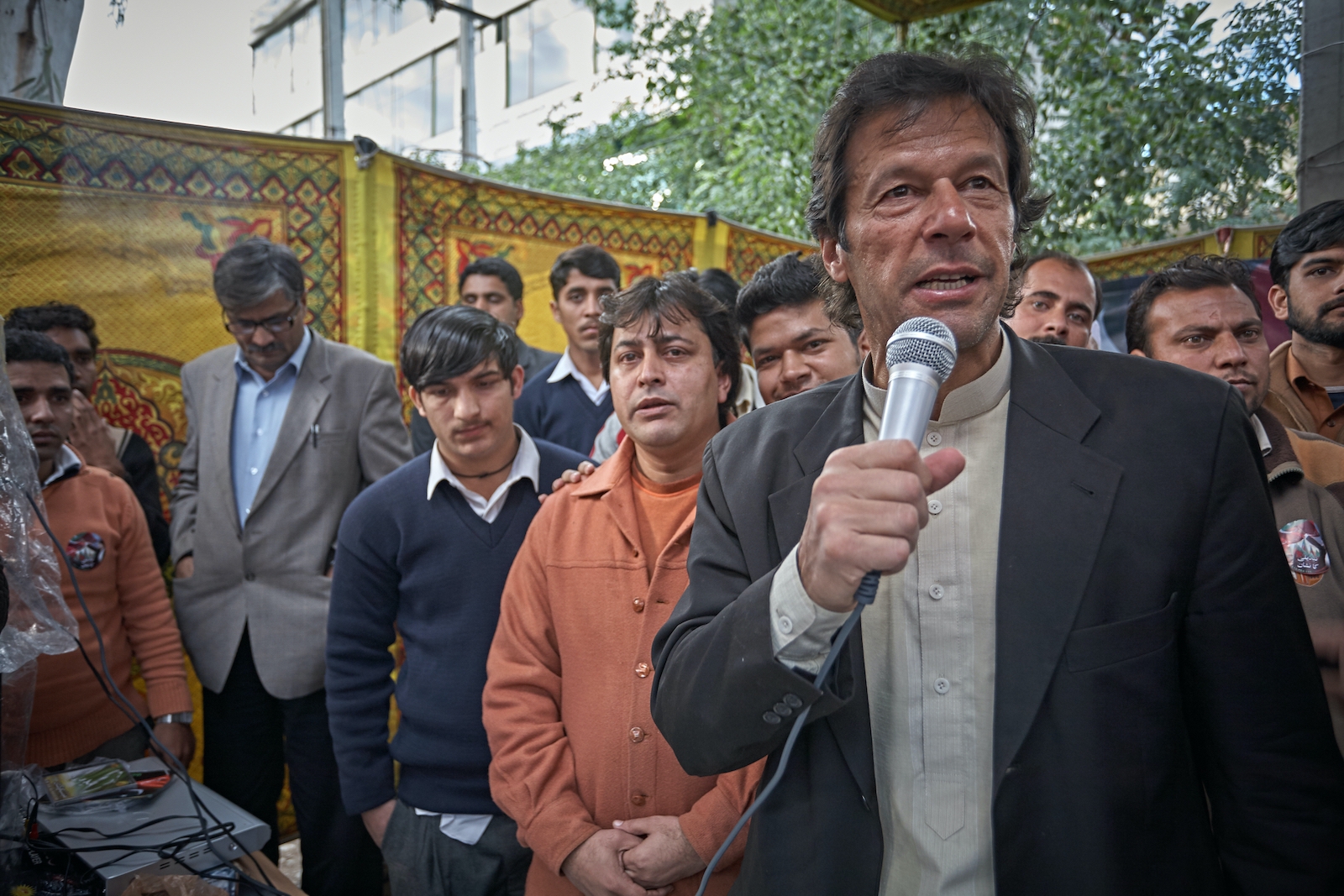
Imran Khan’s Ouster won’t Fix Pakistan
Pakistan’s National Assembly recently ousted Prime Minister Imran Khan following a no-confidence vote. Economic decline galvanized public opinion against Khan and the ruling Pakistan Tehreek-e-Insaf party, spurring weeks of political turmoil. Most notably, Khan blocked his own removal on April 3 by dissolving the National Assembly before facing a likely successful no-confidence vote led by the Pakistan Muslim League and the Pakistan Peoples Party.
Pakistan’s highest court, however, ruled the dissolution unconstitutional, ordering the ultimately successful no-confidence vote to ensue. Pakistan’s powerful army hopes Khan’s ouster will satisfy political discontent and protect the military’s influence amid the country’s economic decline.
Pakistan’s economy is in a tailspin. Since Khan assumed office in 2018, inflation has increased from 3.9 percent to 6.7 percent in 2019, 10.7 percent in 2020, and 8.9 percent in 2021. Critically, inflation has hit essential items like ghee, milk, and petrol, with many prices increasing by double-digits year-on-year since mid-2019. For example, since mid-April 2021, rice prices have increased 13.0 percent, flour 18.3 percent, and cooking oil 58.1 percent. Moreover, today’s prices for all essential goods are 16.4 percent higher since mid-April 2021. A Gallup Pakistan poll in January found that 64 percent of Pakistanis consider inflation Pakistan’s greatest problem.
Pakistan’s economy faces more problems. Pakistan’s GDP per capita grew 3.7 percent in 2018 but fell to -0.9 percent in 2019 and -2.9 percent in 2020. The World Bank forecasts Pakistan’s GDP growth as South Asia’s lowest in 2022 and 2023. Additionally, Pakistan’s government debt-to-GDP ratio increased from 72.1 percent in 2018 to 100.3 percent in mid-2021. Debt servicing now exceeds Pakistan’s combined spending on defense, government operations, and development like housing and infrastructure. Unemployment, including youth unemployment, is also increasing, which is Pakistanis’ second greatest concern. The Pakistan Institute of Development Economics estimates that 24 percent of college-educated Pakistanis are unemployed.
Pakistan’s economic decline has caused political discontent. Khan repeatedly promised to make Pakistan an Islamic welfare state that provides basic necessities like food and healthcare to the poor. Yet, even middle-class Pakistanis cannot afford necessities. One government worker told The Guardian, “The government has failed to control inflation. I could run my kitchen for 60,000 rupees [$344] three years ago and now I can’t do it for 90,000 rupees [$518].” Opposition parties held large rallies protesting rising inflation and Khan’s government. In response, Khan blamed previous ruling governments for Pakistan’s economic woes and an American “foreign conspiracy” for his political throes.
The country’s powerful army wanted to alleviate this political discontent to maintain Pakistan’s political regime. As Christine Fair said, “Pakistan’s army has governed the country directly or indirectly for much of the state’s history.” Previously, the army launched coups against civilian governments and ruled overtly to alleviate political discontent. But now, the army uses civilian governments to veil governance failures and democratic processes to oust ruling parties. The army reportedly asked Khan to resign, but he refused. Seemingly recognizing the army’s political machinations, Khan increasingly contravened and criticized the army. Eventually, the army then allowed opposition parties to bring the no-confidence vote against Khan.
The Pakistan Army seeks to maintain Pakistan’s political regime to protect its economic interests. A United Nations report notes, “[T]he military establishment owns the largest conglomerate of business entities in Pakistan, besides being the country’s biggest urban real estate developer and manager, with wide-ranging involvement in the construction of public projects.” The army’s commercial enterprises alone are worth an estimated $100 billion. The military also controls 11.58 million acres, or 12 percent of state land, which it distributes to retired personnel and uses for commercial enterprises. Notably, the combined worth of Pakistan’s top hundred military officers is at least $4.6 billion.
However, the military’s appropriation of state resources creates political discontent by perpetuating Pakistan’s socio-economic and corruption struggles. In the fiscal year 2020–21, Pakistan allocated an estimated $11 billion for defense-related activities yet only $151 million for healthcare. The United Nations also found that the military establishment and its elite allies like the corporate sector receive government privileges worth $17.4 billion annually or 7 percent of Pakistan’s GDP. These privileges include tax exemptions, cheaper costs for water and energy, and preferential access to capital. Overall, Pakistan’s richest quintile receives 37.2 percent of government expenditures while Pakistan’s poorest quintile receives just 14.2 percent.
The Pakistan military hopes Khan’s ouster will satisfy political discontent and protect the military’s influence. However, the military’s economic interests perpetuate Pakistan’s socio-economic struggles, which will grow political discontent and eventually agitate another political ouster. Consequently, the cycle of rising political discontent and ruling party ousters will continue, while the military’s influence and reputation as a trustworthy and stable institution will remain. As Juvenal, a Roman poet in the first and second century AD, wrote, “Give them bread and circuses and they will never revolt.” The Pakistan Army cannot give Pakistanis bread, so it has given them a grand political circus.

